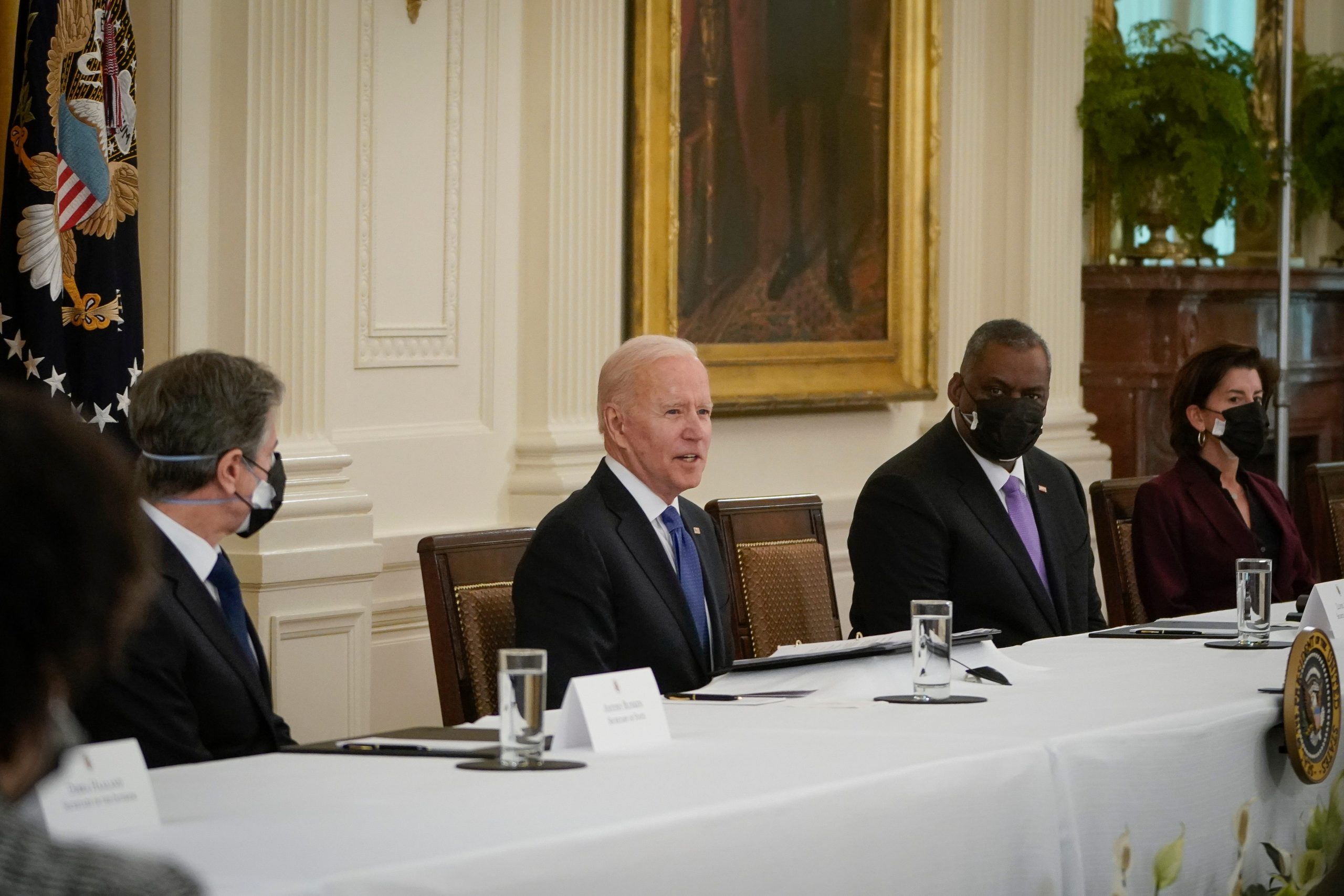
Drew Angerer / Getty Images
- President Biden vowed to appoint the most diverse Cabinet in history and fix economic inequities.
- Financial support for women, communities of color, and low-income American are among the pledges.
- The president faces an uphill battle to get the plans through Congress amid Republican resistance.
- See more stories on Insider's business page.
President Joe Biden promised his Cabinet would be the most diverse in history. Recently released data revealed his progress.
After saying he wanted his administration to "look like America" in December last year, the 78-year-old president has mostly succeeded in his plan to diversify the executive branch, according to an analysis by Insider in February.
As the country tries to emerge from the worst economic crisis since the 1930s, Biden has installed a diverse team to forward his economic and business agenda, which includes tackling entrenched inequities.
Among them, Treasury Secretary Janet Yellen as the first woman to lead the department in its 231-year history, Cecilia Rouse as the first African American to chair of the Council of Economic Advisors, and Pete Buttigieg as the first openly gay cabinet member in his role as transportation secretary.
Last week marked the first 100 days of the Biden administration. We take a look at some of the actions taken since his January inauguration to promote diversity in business, the workplace and support communities disproportionately affected by the Covid-19 pandemic.

Getty Images
A $2 trillion infrastructure plan that targets funding towards underserved neighborhoods
Biden's proposed $2 trillion infrastructure bill sets out to repair the country's dilapidated road and bridge network, expand access to high-speed broadband and accelerate the clean energy transition.
The American Jobs Plan targets infrastructure projects towards historically underserved communities. The plan includes proposals to replace lead pipes that disproportionately harm Black children and a $20 billion investment to "reconnect" previously cut-off areas to affordable public transportation systems.
The plan would also build more climate-resilient public infrastructure, with a focus on low-income people and communities of color, who are most vulnerable to the impact of extreme weather events such as flooding.
However, Republicans have opposed the bill, citing its "far-left" priorities and the corporate tax hike Biden has said will finance the plan.

Stefani Reynolds Pool / Getty Images
Proposed funding to build a diverse clean-energy workforce, with investments targeted towards historically Black colleges
Biden's administration is pushing for more solar panels to be installed in communities disproportionately affected by pollution, as part of his American Jobs Plan.
The Department of Energy announced on Tuesday that $15.5 million would go into installing solar panels in underserved communities and training a diverse clean-energy workforce.
The DOE also committed $17.3 million to fund internship and research programs, with a focus on training more students of color in STEM fields. More than $5 million will be directed to 11 colleges, including historically Black universities Howard and Florida A&M.
Historically Black colleges have long been denied equal access to federal funding opportunities, DOE secretary Jennifer Granholm said in a roundtable discussion at Howard University on Monday.
"This administration is really committed to making the transition to clean energy an inclusive transition, offering benefits to every community," Granholm said.

Getty Images
A plan to introduce 12 weeks of paid family leave - and Biden hopes it will encourage women to stay in the workforce
Biden has introduced a $1.8 trillion American Families Plan - made up of a mix of investments and tax cuts - that would create a national paid family and medical leave program.
The plan is estimated to cost $225 billion over 10 years.
The Biden administration hopes that introducing 12-weeks of paid family leave will help mothers to keep working, reduce racial disparities in lost wages, and improve children's health.
Biden's plan also commits to providing support for low- and middle-income families to access childcare, ensuring this does not account for more than 7% of their income, and investing in the childcare workforce.
Childcare workers are among the most underpaid in the US and more than nine in ten jobs are held by women, and more than four in ten by women of color.

Getty Images
An overturn of Trump's ban on federal workplace diversity and inclusion training
One of Biden's first actions as president was to revoke the workplace diversity training ban, signed by former President Trump, across federal agencies and their contractors.
Biden issued an executive order on his first day in office, which overturned Trump's ban on diversity and inclusion training that taught critical race theory and involved discussions on institutional racism.
The new order instead advances a "whole-of-government" approach to addressing racial inequities, and asks federal agencies to consider whether their policies and programs create barriers for underserved communities to access their benefits and services.

Getty Images
Targeted Covid-19 relief, including protections for those in insecure work
The landmark $1.9 trillion stimulus package includes funding commitments to help communities that have been disproportionately affected by the pandemic.
In the law, signed in March, $5 billion is provided to farmers of color to invest in their business, buy equipment and repay loans.
"This is a big deal for us," John Boyd, Jr., president of the National Black Farmers Association, told CBS. "We see this as a great opportunity to help thousands."
In the package, unemployment insurance for self-employed and gig workers, such as ride-share and takeout delivery drivers, has been extended until September.
In announcing the plan, Biden called on businesses to provide back hazard pay to frontline workers - who are disproportionately Black, Latino and Asian American and Pacific Islander - in retail and grocery sectors. It was employers' "duty," the proposal stated, to compensate workers who had risked their lives to keep businesses running.
Biden still faces a challenging road ahead
The president's administration has taken bold and swift action in its first 100 days, even winning praise from more left-leaning members of his own party. But the impact of Biden's policies will only be felt in the coming months and years.
Biden still faces an uphill battle to get his Jobs Plan and Families Plan through Congress in the face of Republican opposition and with a razor-thin majority.